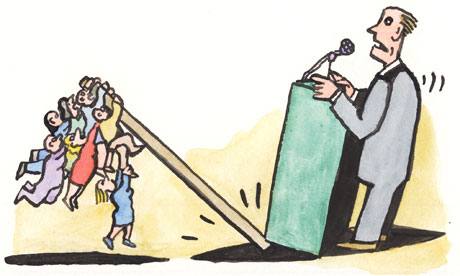The Guardian - John Harris, 6/23/13
The unrest of 2011 is likely to last for decades. From Istanbul to Rio, it's not about austerity, but the nature of the state

Throughout 2012 and the first part of 2013, a comfy misapprehension seemed to have settled among those whose job is to analyse world events: that, aside from continuing turbulence in the Arab world, the huge surge of protest that defined 2011 had long since died. This plotline was never entirely convincing. It is less than a fortnight since there was a general strike in Greece, such blighted eurozone countries as Spain and Italy have hardly been models of quiet and obedience, and protest movements in such wildly diverse countries as Chile and Israel have not gone away. But in the UK and US, the demise of Occupy fed into a banal but effective story: that camping in city squares and decrying the general state of things is so 2011, darling.
But now look, chiefly at Brazil, where protests have rippled through around 80 cities, with clear echoes of events two years ago. Inevitably, everything is organised via social media; as happened in 2011, exactly what anyone wants seems less important than the general outlines of dissent, and the simple experience of being involved. There has been surprise that such convulsive events have happened in a country seemingly transformed by the ruling Workers' party, where unemployment is at an all-time low. But therein lies proof that deeper factors are at work, and the country seems to be sounding a great popular wail about a distant state and cronyish elite. "This must be a nation where people have a voice, [and] we don't have a voice any more," runs a typical statement from a protester. To quote from a Financial Times report: "While much has changed in Brazil, the protests highlight those things that have not – repressive and outdated policing, an inefficient state, and an often corrupt and ineffective political class."
More: The Guardian

